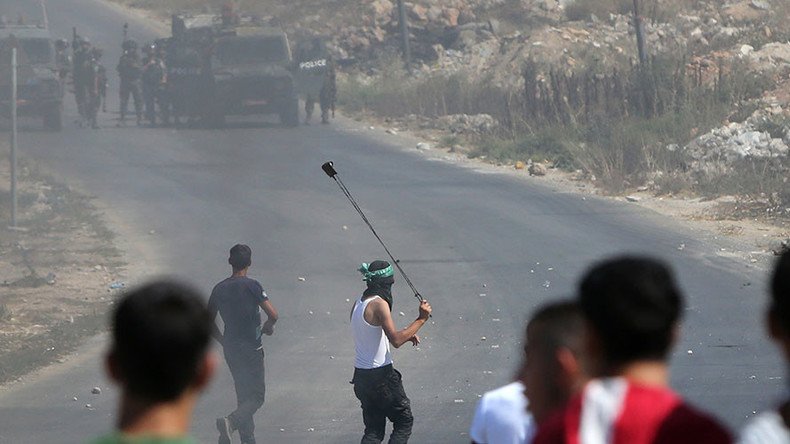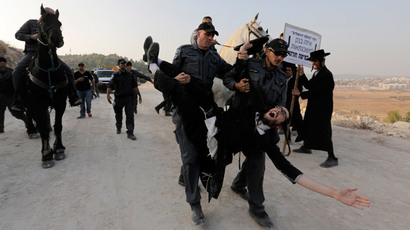Israel’s ‘only real existential threat’ is potential civil war – fmr Mossad chief

Potential civil war is the number one threat to Israel’s national security, a former Mossad chief said in his first public appearance since leaving office. Tamir Pardo named divisions within society and the triumph of hatred as the main driving forces of internal conflict.
“There is no outside existential threat to Israel, the only real existential threat is internal division,” Pardo said at an annual event to honor fallen Druse soldiers in the north. “Internal division…can lead us to civil war.”
Claiming that Israel is already on the path towards civil war, the former chief of the national Israeli intelligence agency warned that soon Israelis could cross a “certain line in its division and hatred” that could spill over into “a phenomenon like a civil war.”
The State of Israel had a population of over 8,500,000 inhabitants as of May 2016. Some 74.8 percent of them are Jews, 20.8 percent Arab, while the remaining 4.4 percent are defined as "other".
While Jews and Arabs are technically afforded equal rights under the Israeli law, in many ways, the two sectors live in separate societies – attending different schools, living in different cities, reading different newspapers and pursuing different political goals.
To aid the state of society Pardo called for a diplomatic solution to the Israeli-Palestinian conflict, saying without it “we will never be able to achieve normalization with our Arab neighbors.”
“The prime minister has said there will be two states between the [Mediterranean] Sea and the [River] Jordan and he’s right,” Pardo said. "In my opinion, we won't be able to reach any agreement with any country beyond what we have now if we don't solve the Palestinian issue."
As far as internal Jewish societal disagreements, the former Mossad chief said that some people in Israel sought the intensity of the existing division.
“There are some for whom it’s comfortable to emphasize that which divides and not that which unites. I can’t put my finger on a group or a leader. It exists within all the country’s groups.”
Former Mossad chief: End is near for ‘fearmonger’ Netanyahu’s govthttps://t.co/E16V0sLiiapic.twitter.com/qVIneu27Ba
— RT (@RT_com) June 1, 2016
Besides the Jewish-Arab divisions in society, according to the latest Pew Research Center studies, Israel is also divided along Orthodox Jewish lines and those who are more contemporary followers of Judaism.
“These divisions are reflected in starkly contrasting positions on many public policy questions, including marriage, divorce, religious conversion, military conscription, gender segregation and public transportation,” Pew noted. “Overwhelmingly, Haredi and Dati Jews (both generally considered Orthodox) express the view that Israel’s government should promote religious beliefs and values, while secular Jews strongly favor separation of religion from government policy.”













